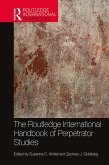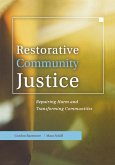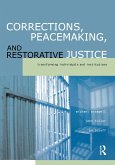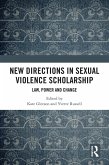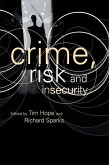Imagining Justice seeks to move away from normative thinking about justice, particularly in the area of justice education, suggesting that what is needed today is a way to think about the enterprise of justice that will capture its full potential. By providing an introduction to the intellectual potential of the field of justice, we can acknowledge that the field is wider than formerly recognized, and ultimately imagine the full richness that justice can encompass.
Dieser Download kann aus rechtlichen Gründen nur mit Rechnungsadresse in A, B, BG, CY, CZ, D, DK, EW, E, FIN, F, GR, HR, H, IRL, I, LT, L, LR, M, NL, PL, P, R, S, SLO, SK ausgeliefert werden.
Hinweis: Dieser Artikel kann nur an eine deutsche Lieferadresse ausgeliefert werden.



